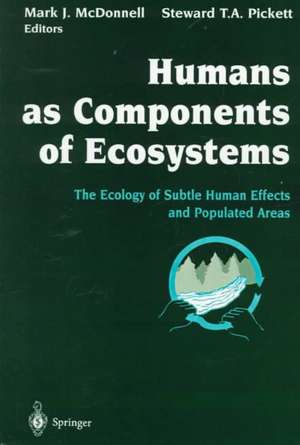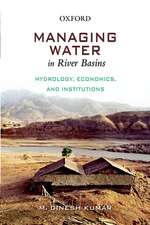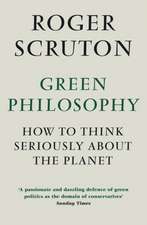Humans as Components of Ecosystems: The Ecology of Subtle Human Effects and Populated Areas
Editat de Mark J. McDonnell Cuvânt înainte de W.J. Cronon Prefață de G.E. Likens Editat de Steward T. A. Picketten Limba Engleză Paperback – 30 apr 1997
Preț: 393.74 lei
Nou
Puncte Express: 591
Preț estimativ în valută:
75.35€ • 78.38$ • 62.21£
75.35€ • 78.38$ • 62.21£
Carte tipărită la comandă
Livrare economică 14-28 aprilie
Preluare comenzi: 021 569.72.76
Specificații
ISBN-13: 9780387982434
ISBN-10: 0387982434
Pagini: 364
Ilustrații: XXI, 364 p.
Dimensiuni: 155 x 235 x 21 mm
Greutate: 0.55 kg
Ediția:1st ed. 1993. 2nd printing 1997
Editura: Springer
Colecția Springer
Locul publicării:New York, NY, United States
ISBN-10: 0387982434
Pagini: 364
Ilustrații: XXI, 364 p.
Dimensiuni: 155 x 235 x 21 mm
Greutate: 0.55 kg
Ediția:1st ed. 1993. 2nd printing 1997
Editura: Springer
Colecția Springer
Locul publicării:New York, NY, United States
Public țintă
ResearchCuprins
1 Introduction: Scope and Need for an Ecology of Subtle Human Effects and Populated Areas.- Section I The Human Factor: Perception and Processes.- 2 The History and Present Entanglements of Some General Ecological Perspectives.- 3 An Exceptionally Powerful Biotic Factor.- 4 Environmental Change: The Human Factor.- 5 The Iceberg and the Titanic: Human Economic Behavior in Ecological Models.- 6 Ecosystems and Human Actions.- 7 The Human Component of Ecosystems.- Section II Approaches to the Study of Humans as Components of Ecosystems.- 8 Discovery of the Subtle.- 9 Land-use History and Forest Transformations in Central New England.- 10 Variability in Lake Ecosystems: Complex Responses by the Apical Predator.- 11 Humans as a Component of the Lake Titicaca Ecosystem: A Model System for the Study of Environmental Deterioration.- 12 Nitrogen Loading of Rivers as a Human-Driven Process.- 13 Humans: Capstone Strong Actors in the Past and Present Coastal Ecological Play.- 14 Modification of Nitrogen Cycling at the Regional Scale: The Subtle Effects of Atmospheric Deposition.- 15 The Application of the Ecological Gradient Paradigm to the Study of Urban Effects.- 16 The Process of Plant Colonization in Small Settlements and Large Cities.- 17 Ecological Implications of Landscape Fragmentation.- Section III Implications for Ecosystem Management and Construction.- 18 Integration of Social and Ecological Factors: Dynamic Area Models of Subtle Human Influences on Ecosystems.- 19 Human Influences on Ecosystems: Dealing With Biodiversity.- 20 “Natural” or “Healthy” Ecosystems: Are U.S. National Parks Providing Them?.- 21 Restoration as a Technique for Identifying and Characterizing Human Influences on Ecosystems.- 22 Biosphere 2 and the Study of Human/Ecosystem Dynamics.- SectionIV Overview.- 23 Part I: A Social Scientist’s Perspective.- II: A Human Ecologist’s Perspective.- III: A Marine Ecologist’s Perspective—Humans as Capstone-Species.- IV: A Theoretical Ecologist’s Perspective: Toward a Unified Paradigm for Subtle Human Effects and an Ecology of Populated Areas.- 24 Humans as Components of Ecosystems: A Synthesis.













